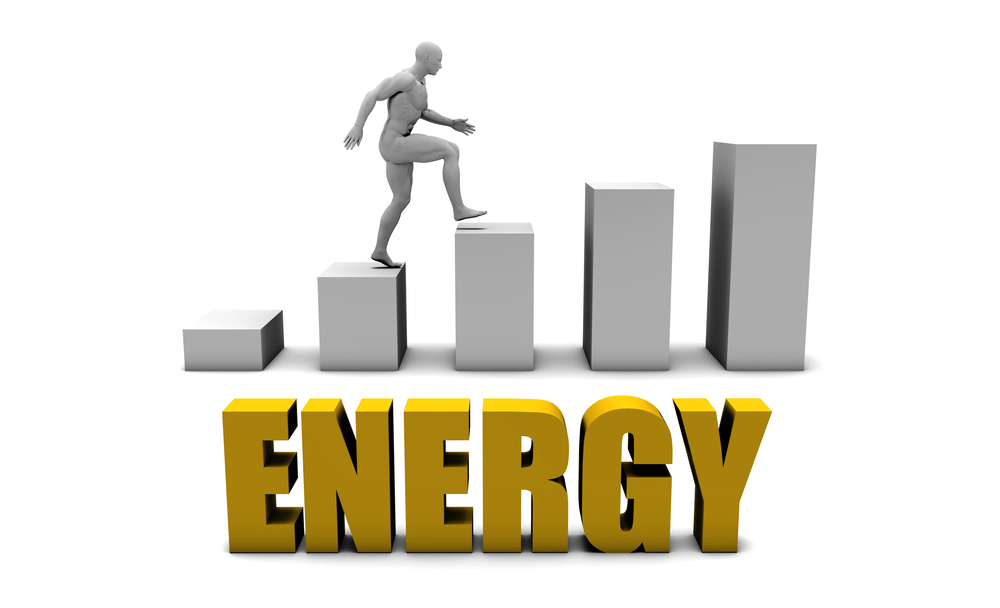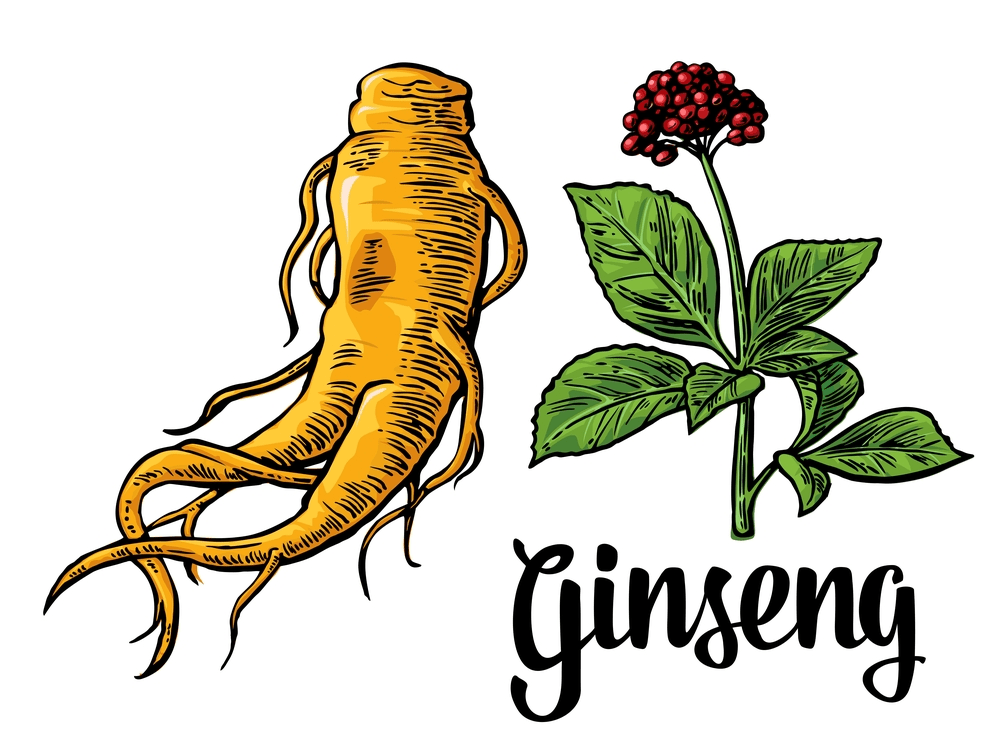
Exhaustion can strike anyone at any time. While fatigue is a side effect of many medical conditions, it’s also an ever-increasing side effect of modern life.
There are many reasons why someone may have low energy including:
* Inadequate amounts of quality sleep
* Diet that doesn’t provide what your body needs
* Emotional or psychological stress
* Anemia
* Thyroid problems
* Bacterial or viral illness
Low energy presents itself in different ways. You may have a hard time completing physical activities like workouts or your job. Your brain doesn’t function as efficiently so it’s easier to make mistakes or harder to remember things. Mood can also be affected by fatigue.
Understanding why you’re tired is of utmost importance to your long-term health. It can also help you choose the right supplements. Supplements can help boost energy temporarily or even correct an underlying reason for fatigue.
There are many types of supplements that can help improve energy. The ones listed here fall into three categories – adaptogens, cellular energy supporters, and nitric oxide boosters.
Adaptogens help the body adapt to stress. While there aren’t many well designed clinical studies to support their use yet, we can acknowledge that they’ve been used by humans for thousands of years for a wide range of ailments including fatigue. Limitations in western science doesn’t necessarily mean that adaptogens are not potent, useful remedies when used with care and common sense. It just means we’re still trying to figure out how they work and for whom.
Cellular energy supporters supply the cells with what they need to produce energy. What goes on within the mitochondria of a cell to produce energy is impressive and requires an adequate supply of many compounds. If one compound isn’t available, the process slows or stops. Taking certain supplements can provide the cells what they need to make energy which is used by your muscles and organs.
Nitric oxide boosters stimulate nitric oxide production in the body. Nitric oxide, or NO, is a vasodilator and helps with energy levels by increasing blood flow. While studies tend to focus on exercise performance, you don’t have to be an athlete to benefit from them.

American or Asian Ginseng
American ginseng (Panax quinquefolius) and Asian ginseng (panax ginseng) are adaptogenic herbs that may be useful in treating fatigue, cognitive functioning and memory.
The World Health Organization (WHO) supports the use of Asian ginseng as “a prophylactic and restorative agent for enhancement of mental and physical capacities, in cases of weakness, exhaustion, tiredness, and loss of concentration, and during convalescence”.
The two types of ginseng are similar but have different amounts of ginsenosides, the compound believed to give them some of their benefits. This could be why they have slightly different effects in studies. Nevertheless, both types are considered effective in helping to reduce fatigue and improve mental performance.
In one study of 52 healthy people between the ages of 40 and 60, those who received 200 mg of American ginseng had notable improvements in their working memory.
Asian ginseng showed a significant effect on self-reported fatigue in a study of 90 adults who experienced chronic fatigue.
How to use American or Asian ginseng:
It’s suspected that long term, continued use of ginseng can reduce its effects. It’s recommended that daily supplement use be limited to a three-month period.
American and Asian ginseng is generally considered safe but not recommended for people who are pregnant or nursing, or who have high blood pressure.
Suggested dosage:
* Tincture 1:5 (g/ml): 5-10 ml
* Standardized extract (4% total ginsenosides): 100 mg twice daily

Eleuthero
Eleuthero (Eleutherococcus senticosus), while not technically ginseng, is often referred to as “Siberian ginseng”. Despite the nickname, it is a completely different herb. Like ginseng though, eleuthero is an adaptogenic herb that has been traditionally used to combat physical, emotional and mental fatigue.
Eleuthero is one of the top five adaptogens used by Western herbalists. While more well-designed clinical studies are needed, there is evidence suggesting it may exert anti-fatigue, anti-stress, immuno-enhancing, and anti-depressive effects.
For example, a 2004 study of adults with chronic fatigue showed that eleuthero was effective in reducing subjective feelings of fatigue in those with moderate cases. Those with more severe cases of fatigue, however, did not see such benefits.
Another study examined the herb’s effect on athletic performance. Supplementing with eleuthero twice daily for 8 days in a small study helped improve the stamina and endurance of athletes by as much as 23%.
How to use eleuthero:
It is advised to limit eleuthero use to 1-3 months followed by a 2-month break.
Eleuthero is not recommended for people who are pregnant or nursing, or who have high blood pressure.
Suggested dosage:
* Tincture of a 1:5 (g/ml) standardized preparation: 10-20 ml, 1-3 times daily
* Dry extract: 100-200 mg, 3 times daily

Maca
Maca is an adaptogen that is considered a food. Commonly available as a powder, it has an earthy flavor which people like to mix into smoothies, coffee, or even baked goods. There are a few different varieties including black, yellow and red maca. Native to the Peruvian Andes, it has been used there for thousands of years to enhance stamina, energy, and even libido.
It’s believed that its effects are due to several compounds found in maca including glucosinolates and “macamides”, a new compound discovered in maca.
So, what does maca do? Clinical trials have shown that maca has a beneficial effect on mood and can reduce feelings of anxiety. In this way, it’s considered an “energizer”.
It may also increase physical performance. This was demonstrated in a study where cyclists’ trial times were significantly improved after 14 days of maca extract supplementation.
A review of studies examining the influence of maca on sexual function revealed that both men and women reported greater feelings of desire of well-being, something that can certainly suffer when feeling fatigued. For this purpose, black maca may be the most effective type.
How to use maca:
Maca powder can be incorporated into beverages and baked goods. It may also be part of a supplement blend or as an extract, in which case it is suggested to follow the directions on the supplement label.
There are no known levels of toxicity (there is not enough research yet) but studies show that doses of 3g/day is well tolerated.

Vitamin B12
B12 (also called cobalamin) is a vitamin that is very important but cannot be made by your body. It must be consumed through food, fortified food, or supplements. The best food sources are clams and beef liver, but other meats and fish contain some as well. It is water soluble so it doesn’t remain in your body and must keep being replenished.
B12 is needed for a wide variety of functions in the body including healthy red blood cell formation and energy production. Symptoms of B12 deficiency include fatigue, weakness, and changes in cognitive function.
While it is believed that most people get adequate amounts of B12 through diet, the following factors can put someone at risk for deficiency:
* Vegan or vegetarian diet
* Advanced age
* Use of proton-pump inhibitors (Prilosec, Nexium, Prevacid, etc)
* Gastrointestinal disorders or surgery
* Pregnant or lactating
Recent research suggests, however, that the prevalence of deficiency due to absorption or metabolic issues might actually be underestimated. The role of genes is being studied with regards to how B12 is metabolized in individuals. Several gene variations have been identified that determine whether or not someone can actually absorb and utilize the B12 they consume.
How to use B12:
B12 supplements are available in many multivitamins, and in pill, spray, or gel form. It can also be administered as a shot (usually by a doctor). It is considered very safe so no upper limit has been set for its use.

CoQ10
CoQ10 (also known as Coenzyme Q10 or ubiquinone) is a nutrient that has long been considered a go-to supplement for energy. This is because it is directly involved in the production of energy within cells. All cells require adequate amounts of CoQ10 to make energy, and when not enough is available, energy production is decreased.
Additionally, CoQ10 is a very effective antioxidant and reduces oxidative damage in the body. This helps protect brain and muscle cells which are also linked to energy levels.
Risk factors for CoQ10 deficiency include:
* Deficiency in vitamin B6
* Genetic variations in CoQ10 synthesis or utilization
* Increased demand due to disease
* Oxidative stress
* Use of statin drugs
It’s been found in studies that people with chronic fatigue and fibromyalgia had very low levels of CoQ10 compared with controls.
Like B12, deficiencies are often caused by genes. Since we don’t know that much about the human genome yet, we don’t know all of the primary genetic causes of suboptimal CoQ10 levels or how they interact with outside factors.
Supplementing with CoQ10 has shown to be beneficial for those experiencing fatigue due to diseases. Some studies show that it can also improve exercise performance, but findings aren’t yet consistent, and more research is needed in this area.
How to use CoQ10:
Unfortunately, CoQ10 supplements are not easily absorbed. How well tissues absorb it may depend on how deficient they are to begin with. There is no set recommendation for supplementation, but studies have shown it to be safe up to 1200 mg/day.

Magnesium
Volumes can be written on the hundreds of roles magnesium plays in the body. Its importance cannot be overstated. Magnesium is involved in energy production, sleep regulation, and reducing oxidative damage.
Although magnesium is widely available in many foods, deficiency is quite common. Among those at risk of deficiency include people who are older, eat a nutrient poor diet, have type 2 diabetes, gastrointestinal disorders, are under physical or emotional stress, or consume a lot of alcohol.
Magnesium is an important mineral to consider for fatigue since it is involved in the proper production of cellular energy in mitochondria.
People who are sleep deprived have also been found to have lower levels of magnesium. A study was conducted to see if magnesium supplementation helped exercise performance in sleep deprived subjects and researchers did find that supplementing with 100 mg of magnesium per day for a month improved physical performance.
Speaking of sleep deprivation, magnesium has been shown in animal studies to produce melatonin, a hormone that helps promote better quality sleep. This can be of real benefit to those who make an effort to get more sleep but find themselves waking frequently or feeling unrested.
We know that stress is exhausting. We also know that people who experience chronic stress have lower levels of intracellular magnesium. What we don’t know is whether the stress depletes magnesium stores or if having low magnesium causes feelings of stress. Either way, supplementation can be beneficial in managing the physical manifestations of stress.
How to take magnesium:
The Food and Nutrition Board at the Institute of Medicine of the National Academies suggests that magnesium from supplements and dietary intake should not exceed 350 mg while at the same setting an RDA for some populations above this. Magnesium is considered very safe and has been shown to be safe even at higher doses. Like any supplement, if you have any questions or concerns it is best to ask your doctor.
Magnesium is available in many forms with varying degrees of absorbability. Among the best absorbed forms are magnesium gluconate, citrate, and aspartate.

L-Arginine
L-Arginine is one of the 20 amino acids used by humans to build proteins. The proteins made by amino acids make up all sorts of things like muscle tissue, cells, hormones, enzymes, even bones and blood.
This amino acid converts to nitric oxide (NO) in the body, a compound that helps blood vessels dilate. This may help improve energy levels because in theory, more vasodilation means more oxygenated blood getting to tissues and therefore more energy.
Some studies do suggest that arginine may have an anti-fatigue effect, while others report that these effects depend on who is taking it. For example, researchers have observed that supplementation lead to a higher tolerance to aerobic and anaerobic exercise in moderately trained people but did not have the same effect for those who were already highly trained.
Yet others surmise that the energy boost associated with arginine could be due to it being a potent antioxidant that prevents oxidative damage within the muscle.
Arginine is also important in the production of creatine, a compound that is stored in your muscles and supplies them with energy.
How to use L-arginine:
A wide range of doses have been used in studies. Taking up to 9 grams per day is likely safe for a period of several weeks. Side effects include GI discomfort and lower blood pressure.
Those who have asthma or allergies, cirrhosis, herpes, low blood pressure, have had a recent heart attack, who are planning a surgery, or are on any medications should ask a doctor about any interactions.

L-Citrulline
Like arginine, L-citrulline is an amino acid that is involved in the production of nitric oxide (NO) and is used to boost energy.
Citrulline helps the body produce arginine as well as creatine. Citrulline’s beneficial effects on exercise performance are theorized by some to be due to its ability to produce arginine. Interestingly, however, some research suggests that citrulline may be more effective as an exercising-enhancing supplement than arginine.
Another way citrulline might help combat fatigue is through its ability to protect against the harmful effects of the acids and ammonia that your body naturally produces. In other words, it may help with the body’s acid-base balance.
Besides actually improving exercise performance, citrulline has also been shown to improve subjective feelings of fatigue and improve memory after exercise.
How to use L-citrulline:
There is no set recommendation for citrulline supplementation, but 9 grams of citrulline for 1 day or 6 grams per day for up to 16 days were the amounts used in studies.

Beetroot
Yes, beets! Beets usually get credit for being “healthy” but they are also great for energy, especially in juiced, gelled or powdered form. Like the amino acids described above, beetroot helps the body produce nitric oxide.
In addition, beetroot contain high levels of betalains, the bioactive pigments that make beets either bright red or bright yellow-orange. The betalains present in beets as well as the polyphenols resveratrol and quercetin, are excellent antioxidants.
Supplementing with beetroot has shown to increase energy in studies involving exercise tolerance. For example, 15 males were given either 70 ml of either beetroot juice or placebo. Those who received the juice performed better in an intense cycling exercise. Even though the subjects performed better, this study didn’t find any difference in their levels of fatigue during or after the exercise.
The results of a different study, however, did show that not only was exercise performance improved, but fatigue was decreased when the beetroot supplement was taken from an already increased metabolic state (after the participants had already started exercising).
How to take beetroot:
Beetroot can be eaten as part of a normal diet, juiced, or taken in powder, pill or gel form. Due to the pigments that naturally present in beets, they can make your urine or stool red. This is normal and nothing to be concerned about.
Improving energy levels through lifestyle
Supplements can help improve energy levels during times of fatigue and stress. It’s important to remember, though, that fatigue is your body’s way of saying it needs to recharge. For some this may mean something as simple as a nap, for others it is a complete lifestyle overhaul.
After ruling out underlying health problems that may be contributing to lack of energy, the following lifestyle habits can help keep your mind and body working at its best:
* Try to get more sleep
* Drink plenty of water
* Get fresh air
* Eat the food that works best with your body
* Engage in moderate exercise
* Interact with people often
* Do things that make you happy whenever possible

